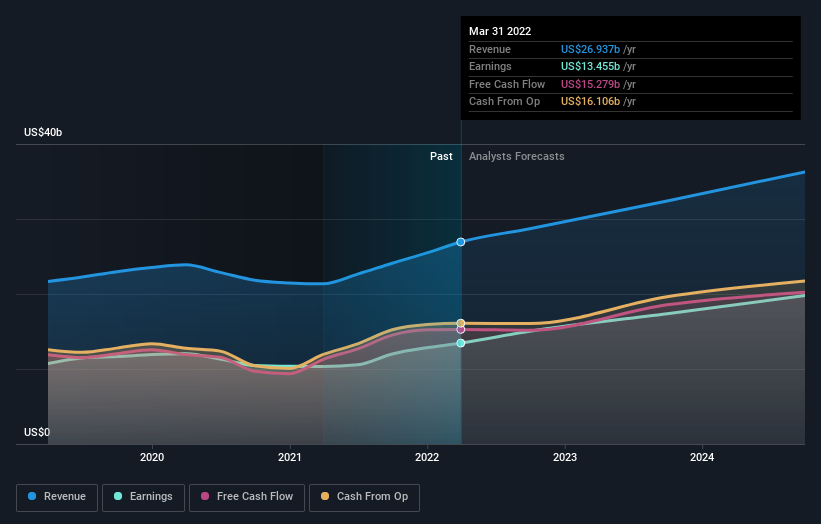Is Now An Opportune Moment To Examine Visa Inc. (NYSE:V)?
Visa Inc. (NYSE:V) saw significant share price movement during recent months on the NYSE, rising to highs of US$228 and falling to the lows of US$189. Some share price movements can give investors a better opportunity to enter into the stock, and potentially buy at a lower price. A question to answer is whether Visa's current trading price of US$190 reflective of the actual value of the large-cap? Or is it currently undervalued, providing us with the opportunity to buy? Let’s take a look at Visa’s outlook and value based on the most recent financial data to see if there are any catalysts for a price change.
See our latest analysis for Visa
Is Visa still cheap?
Good news, investors! Visa is still a bargain right now. According to my valuation, the intrinsic value for the stock is $272.93, but it is currently trading at US$190 on the share market, meaning that there is still an opportunity to buy now. Visa’s share price also seems relatively stable compared to the rest of the market, as indicated by its low beta. If you believe the share price should eventually reach its true value, a low beta could suggest it is unlikely to rapidly do so anytime soon, and once it’s there, it may be hard to fall back down into an attractive buying range.
Can we expect growth from Visa?
Investors looking for growth in their portfolio may want to consider the prospects of a company before buying its shares. Although value investors would argue that it’s the intrinsic value relative to the price that matter the most, a more compelling investment thesis would be high growth potential at a cheap price. With profit expected to grow by 38% over the next couple of years, the future seems bright for Visa. It looks like higher cash flow is on the cards for the stock, which should feed into a higher share valuation.
What this means for you:
Are you a shareholder? Since V is currently undervalued, it may be a great time to accumulate more of your holdings in the stock. With a positive outlook on the horizon, it seems like this growth has not yet been fully factored into the share price. However, there are also other factors such as financial health to consider, which could explain the current undervaluation.
Are you a potential investor? If you’ve been keeping an eye on V for a while, now might be the time to make a leap. Its prosperous future outlook isn’t fully reflected in the current share price yet, which means it’s not too late to buy V. But before you make any investment decisions, consider other factors such as the track record of its management team, in order to make a well-informed buy.
Since timing is quite important when it comes to individual stock picking, it's worth taking a look at what those latest analysts forecasts are. Luckily, you can check out what analysts are forecasting by clicking here.
If you are no longer interested in Visa, you can use our free platform to see our list of over 50 other stocks with a high growth potential.
Have feedback on this article? Concerned about the content? Get in touch with us directly. Alternatively, email editorial-team (at) simplywallst.com.
This article by Simply Wall St is general in nature. We provide commentary based on historical data and analyst forecasts only using an unbiased methodology and our articles are not intended to be financial advice. It does not constitute a recommendation to buy or sell any stock, and does not take account of your objectives, or your financial situation. We aim to bring you long-term focused analysis driven by fundamental data. Note that our analysis may not factor in the latest price-sensitive company announcements or qualitative material. Simply Wall St has no position in any stocks mentioned.

 Yahoo Finance
Yahoo Finance 
